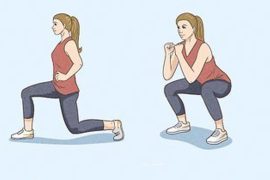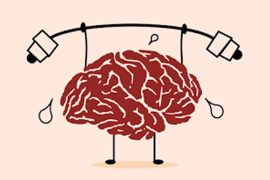Yoga has been praised for its health and well-being for thousands of years, and even beginners can experience improvements by incorporating a few poses into their daily routine. On a physical level, yoga enhances flexibility, strength, balance, and endurance. Psychologically, it promotes mindfulness by helping individuals focus on the sensations, thoughts, and emotions that arise during each pose or exercise. This mindfulness can be a key tool in managing stress and cultivating a sense of awareness in daily life.
Emerging research suggests that yoga can offer benefits for individuals with chronic health conditions such as asthma, heart disease, and multiple sclerosis (MS). While the scientific literature supporting these claims is still growing, there is increasing evidence that regular yoga practice may positively influence overall health and well-being. Yoga’s ability to improve physical health while also fostering mental clarity and relaxation makes it a valuable practice for individuals with various health challenges.
1. Yoga Boosts Emotional Health and Relieves Stress
Yoga is not just physical exercise but a mind-body practice. It helps reduce stress by lowering cortisol levels, reducing heart rate, and enhancing relaxation. This makes it particularly beneficial for emotional well-being, as yoga’s focus on movement and breath can shift attention away from negative thoughts. Research indicates that yoga can improve emotional health in people with mental health conditions such as depression and schizophrenia.
2. Yoga May Help You Get a Good Night’s Sleep
Yoga before bed can help people with insomnia and promote relaxation for anyone looking to wind down. Gentle postures such as forward folds and lying on the back with feet up the wall can calm both the body and mind, helping prepare for restful sleep.
3. Yoga May Help Your Hangover
While not scientifically proven, yoga is often reported to help reduce hangover symptoms. The increase in blood circulation from yoga may assist in eliminating alcohol toxins. Gentle movements are recommended to avoid exacerbating symptoms like nausea.
4. Yoga May Help with Chronic Back Pain
Yoga enhances flexibility and muscular strength, making it an effective treatment for chronic back pain. Research shows that it’s more effective than traditional treatments. Gentle yoga forms, such as Hatha or Iyengar, are recommended to prevent injury, especially for those with existing back issues.
5. Yoga Helps Fight Heart Disease
Yoga improves heart health by lowering blood pressure, reducing heart disease risk, and improving overall cardiovascular function. It enhances circulation, relaxes blood vessels, and eases heart strain. A combination of physical activity, breathwork, and meditation in yoga provides comprehensive benefits to heart health.
6. Gentle Yoga Movements Can Ease Arthritis Pain
Yoga helps manage arthritis pain by improving flexibility, muscle strength, and stress reduction. Studies suggest that it can alleviate pain and improve joint function for people with various types of arthritis. It’s advisable to consult a doctor before starting yoga, especially for those with arthritis.
7. Yoga May Help Ease Asthma Symptoms
Yoga can aid in asthma symptom management by promoting controlled breathing, which helps relax lung muscles and reduce stress. While it doesn’t cure asthma, yoga has been found to improve quality of life for people with moderate asthma.
8. Yoga Can Help People with Multiple Sclerosis (MS) Manage Symptoms
Yoga can improve physical function and mood for people with MS. It helps with balance, muscle strength, coordination, and relaxation, which can improve quality of life. Research indicates benefits such as enhanced walking speed, reduced pain, and improved fatigue levels.
9. Yoga May Help Reduce PTSD Symptoms
Yoga promotes mental wellness and reduces stress, which is particularly beneficial for those suffering from PTSD. Although more clinical trials are needed, existing research suggests yoga can support the management of PTSD symptoms by fostering relaxation and emotional healing.
In conclusion, yoga offers a wide array of mental and physical health benefits, from stress relief and emotional health improvement to helping with chronic conditions like back pain, heart disease, arthritis, asthma, and MS. It can also aid in managing symptoms of PTSD and insomnia.
Disclaimer:
The information contained in this article is for educational and informational purposes only and is not intended as a health advice. We would ask you to consult a qualified professional or medical expert to gain additional knowledge before you choose to consume any product or perform any exercise.







